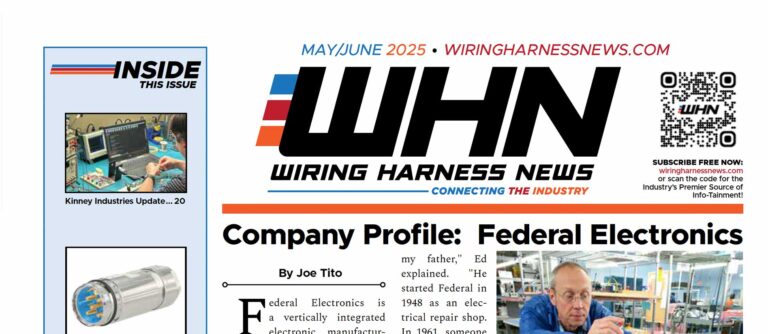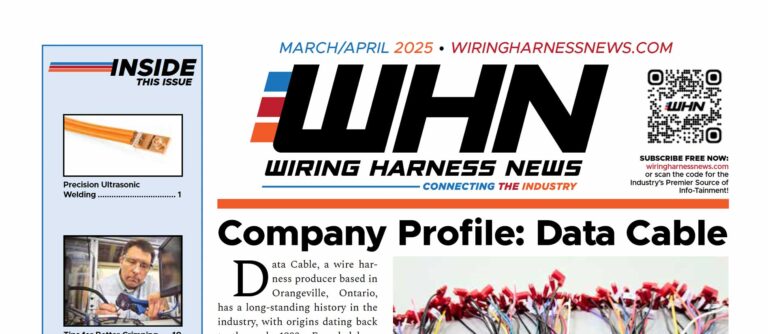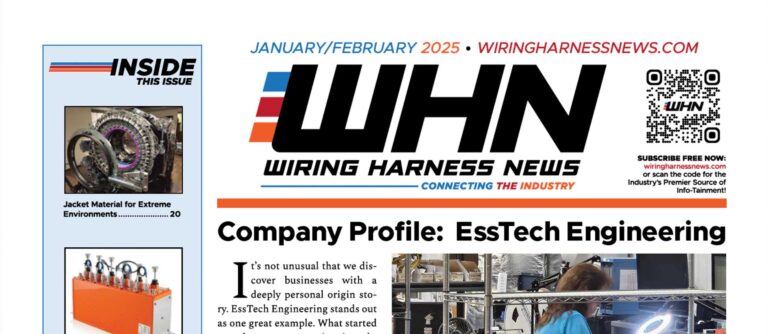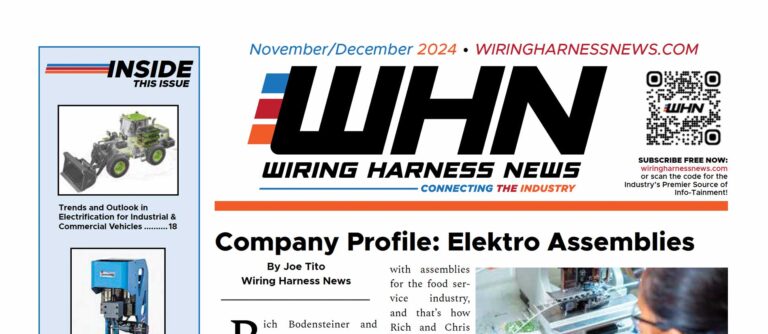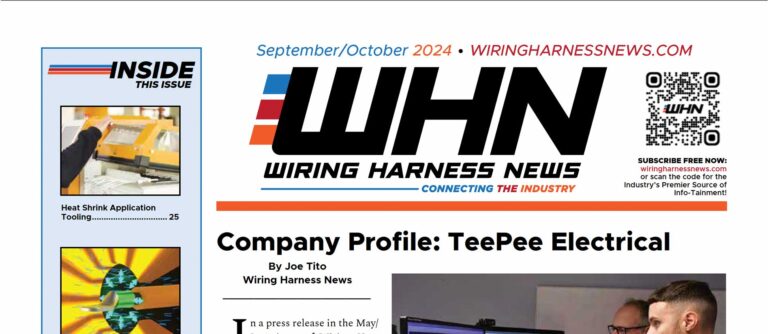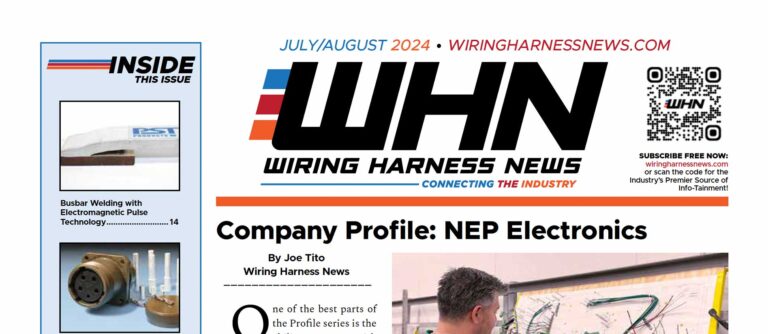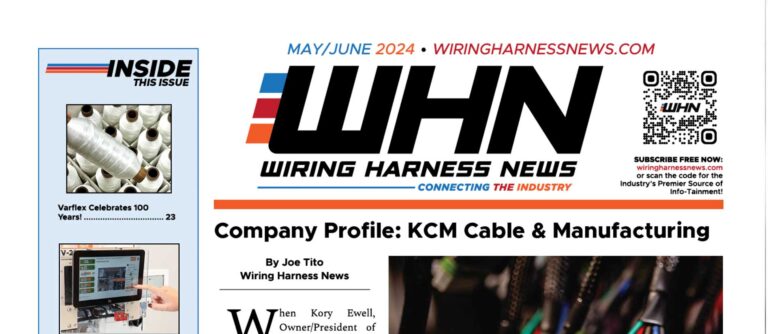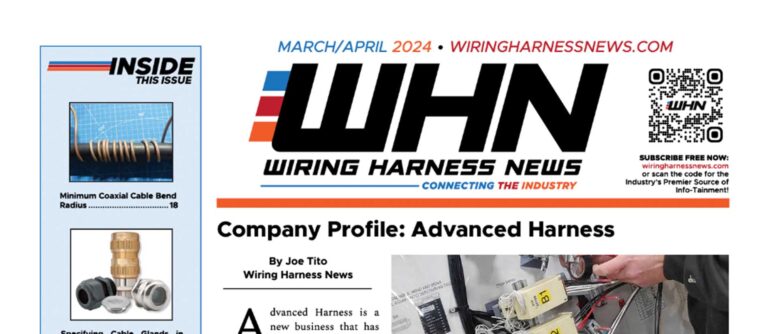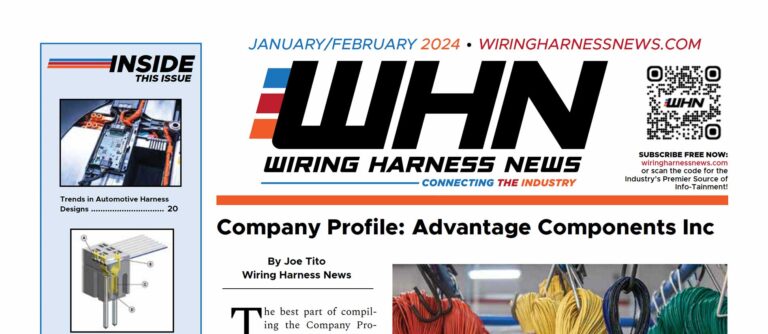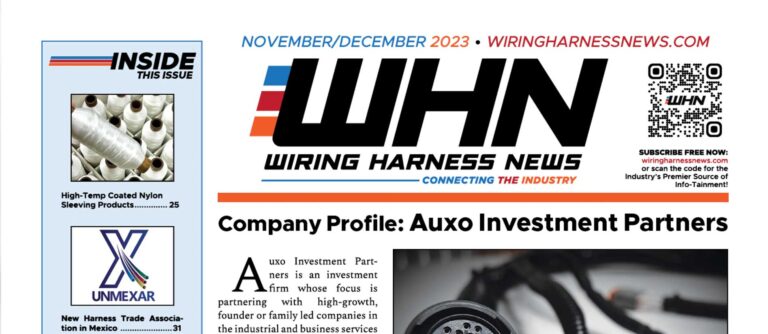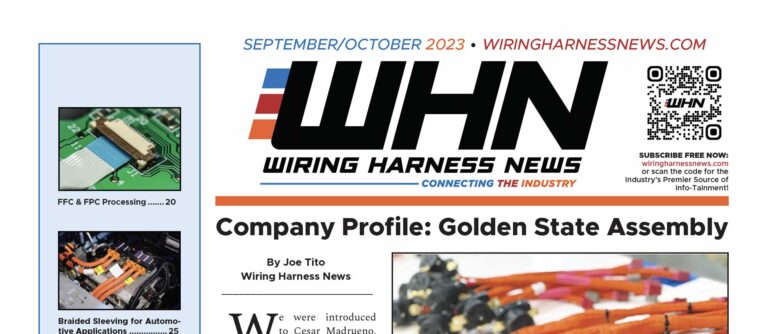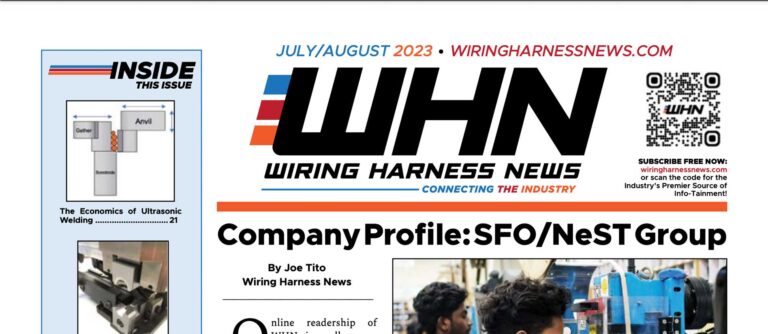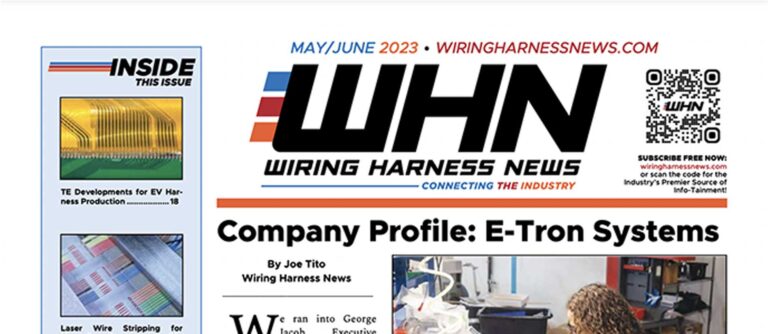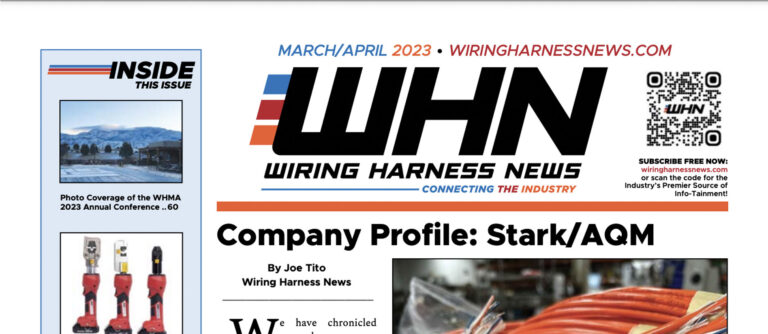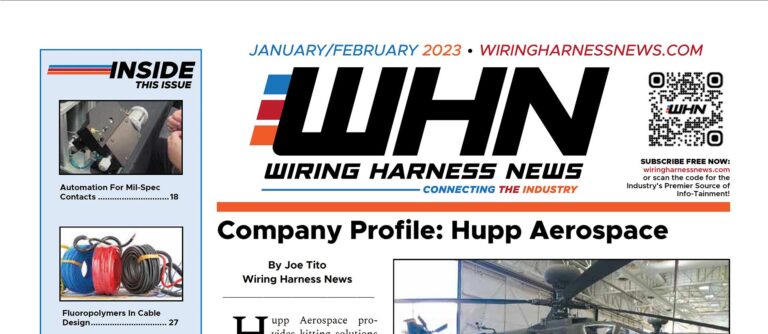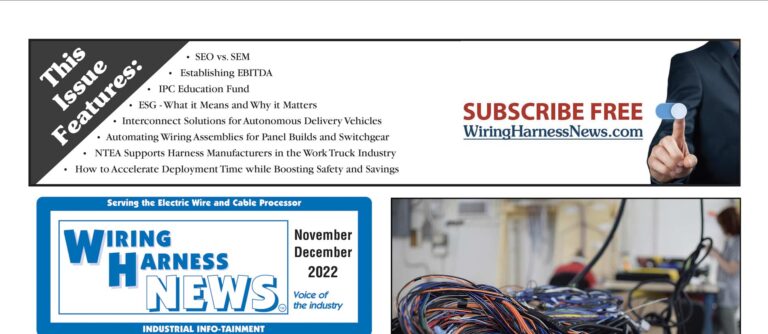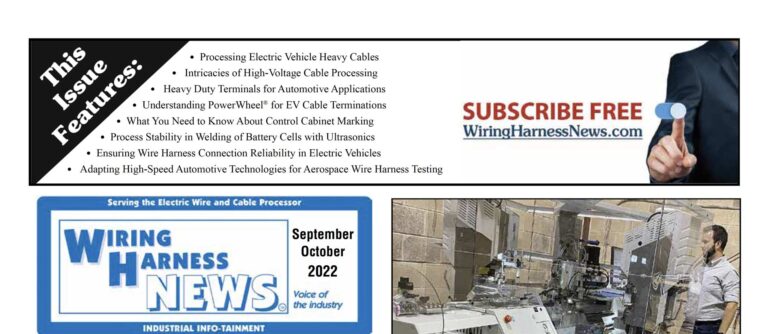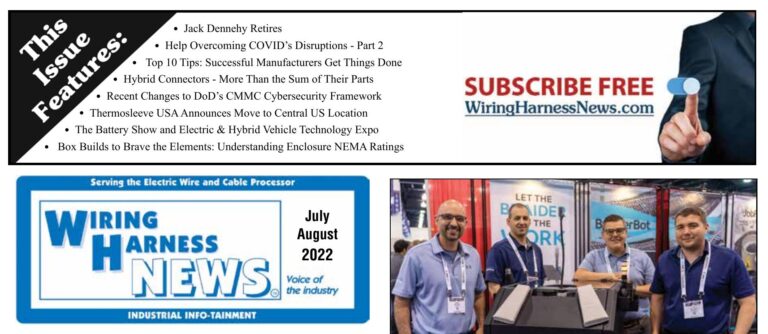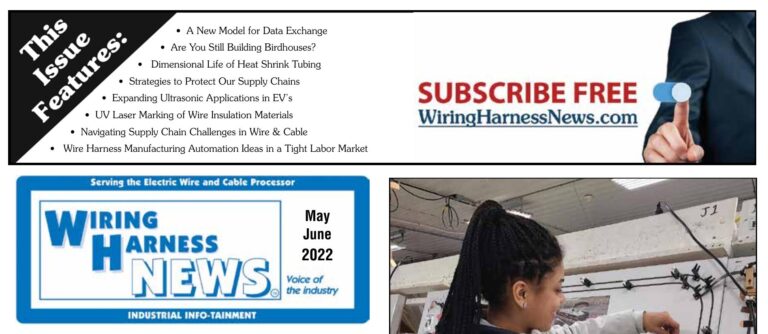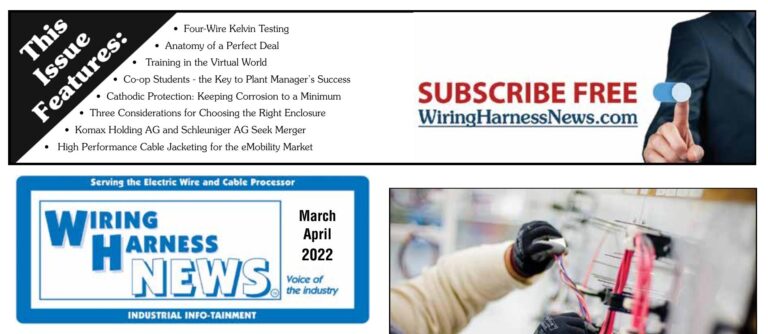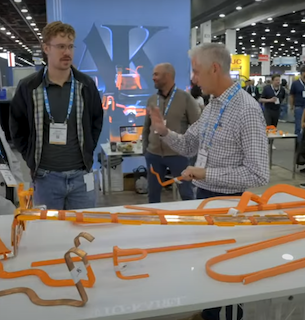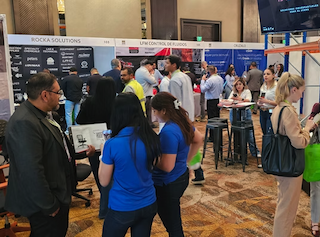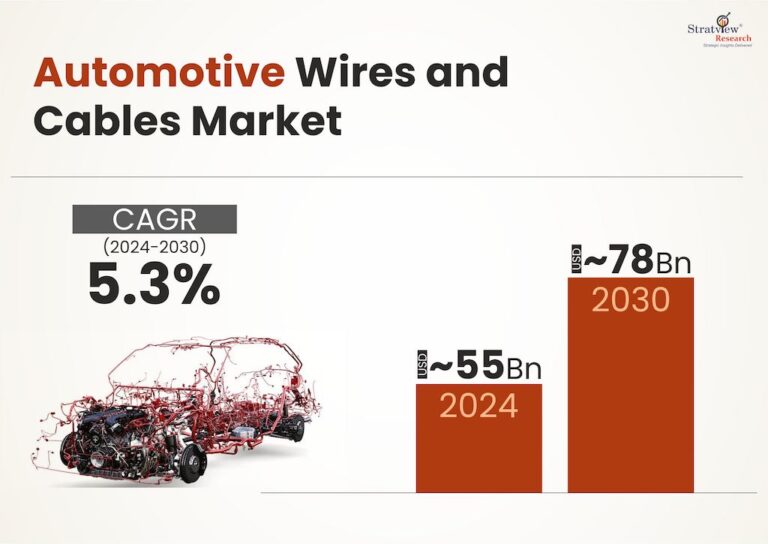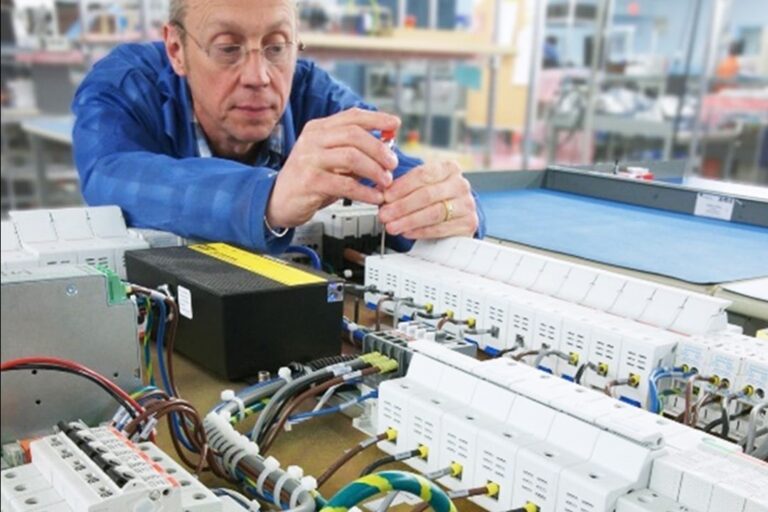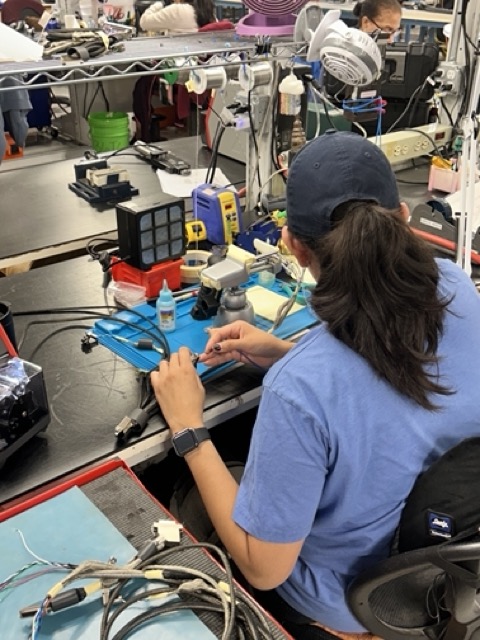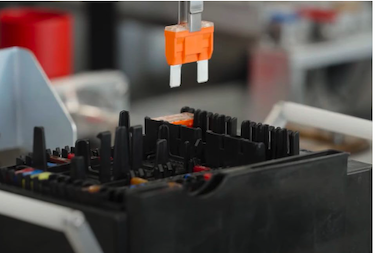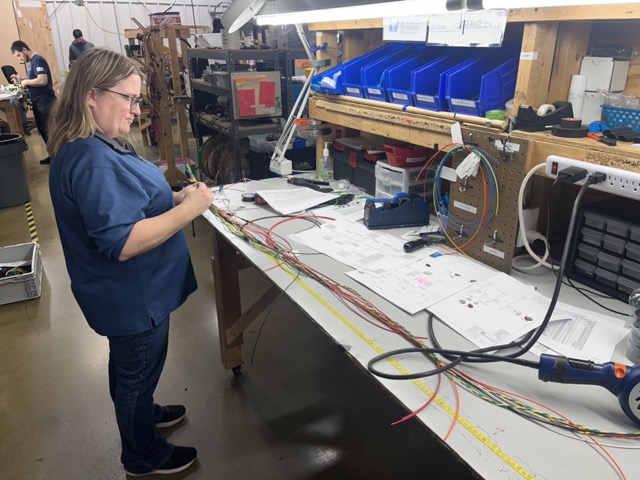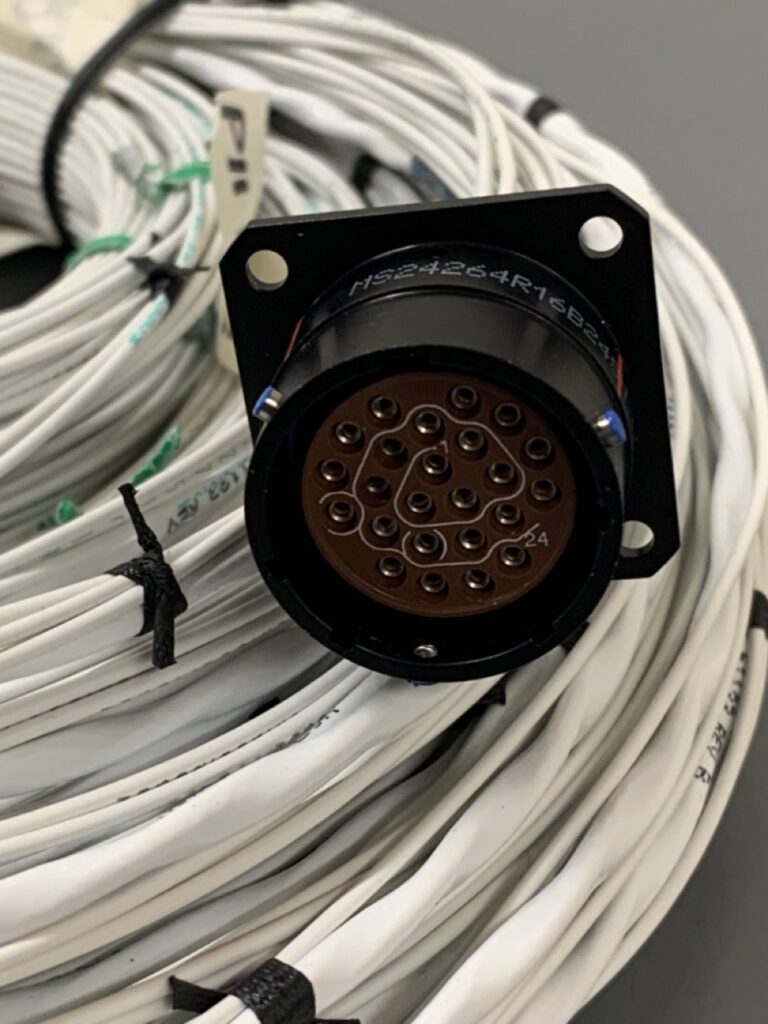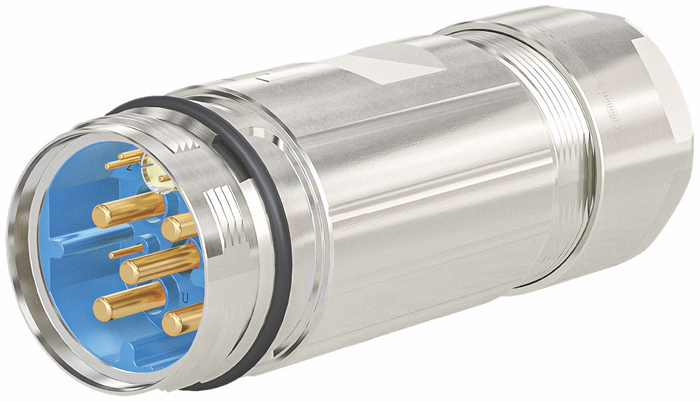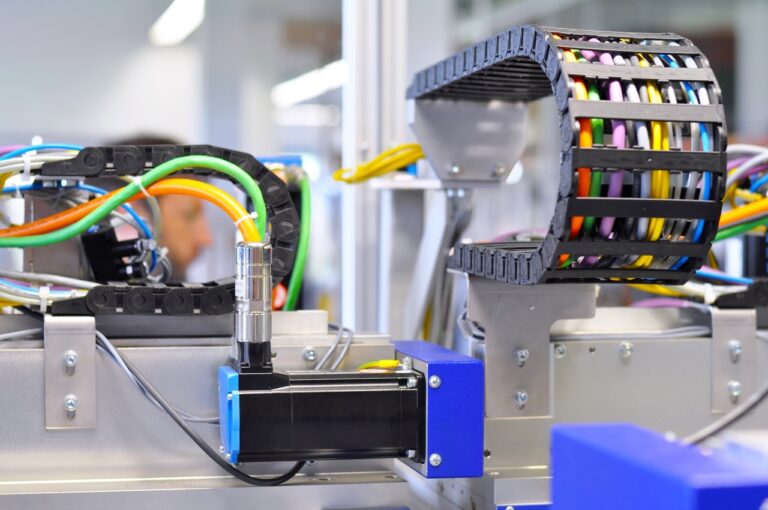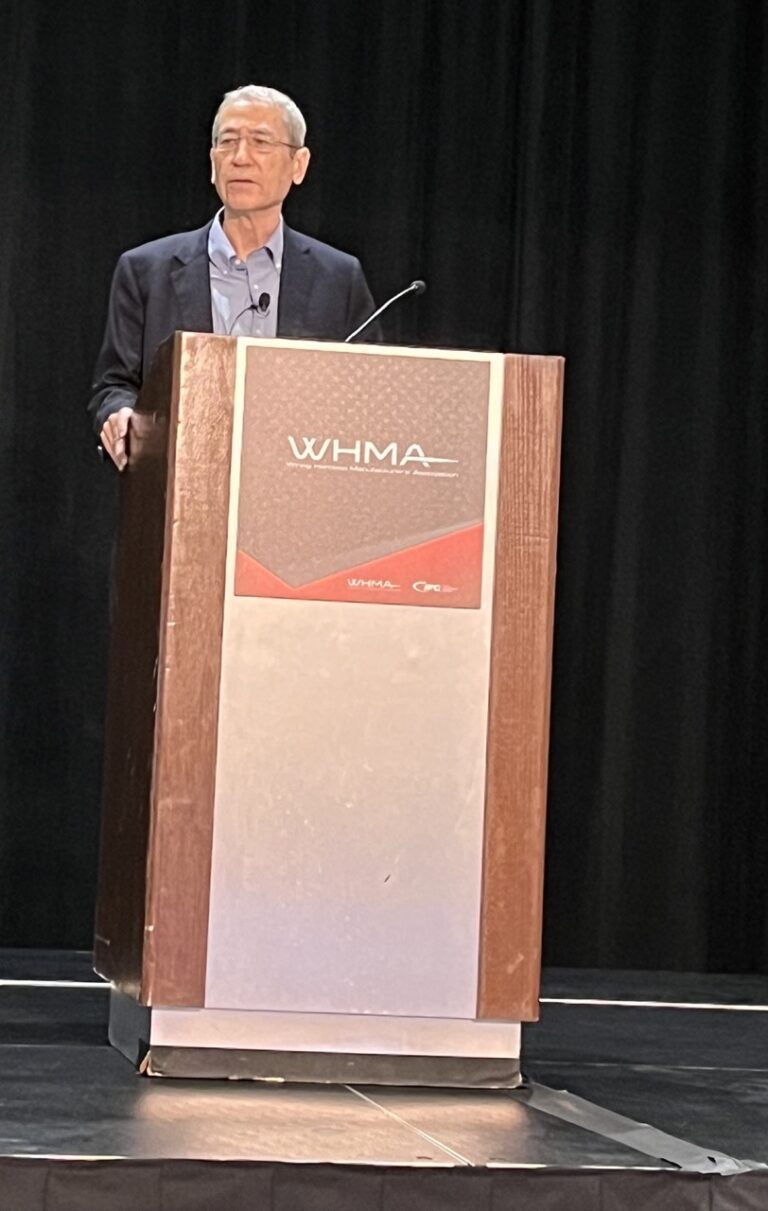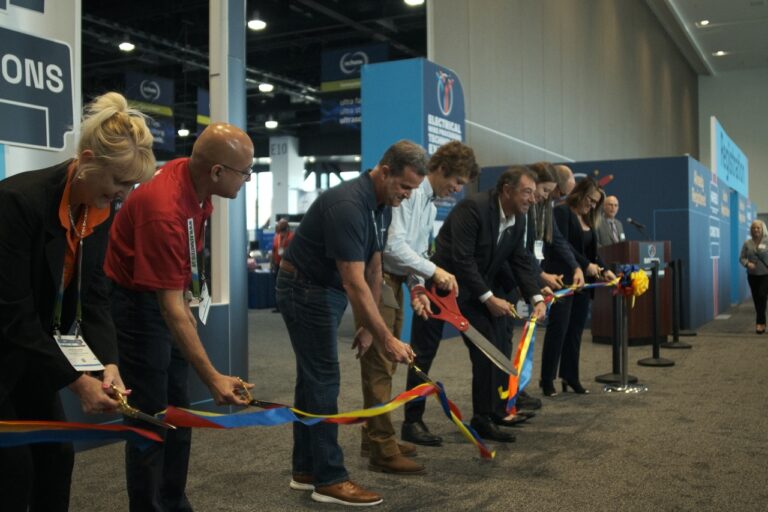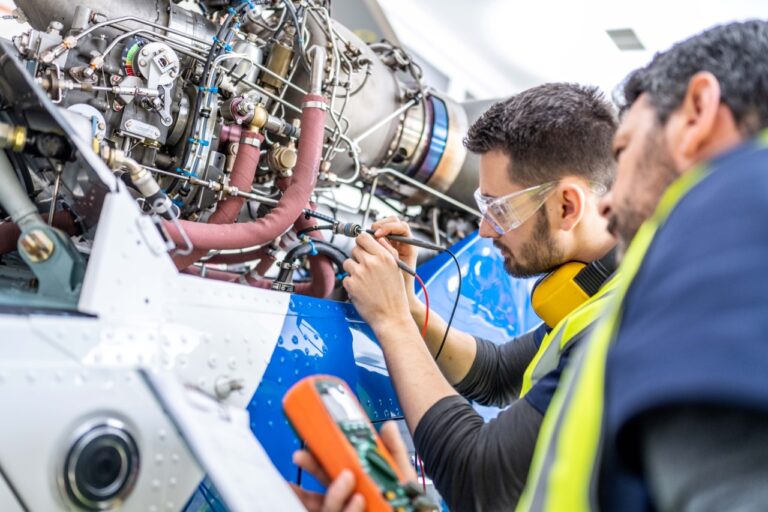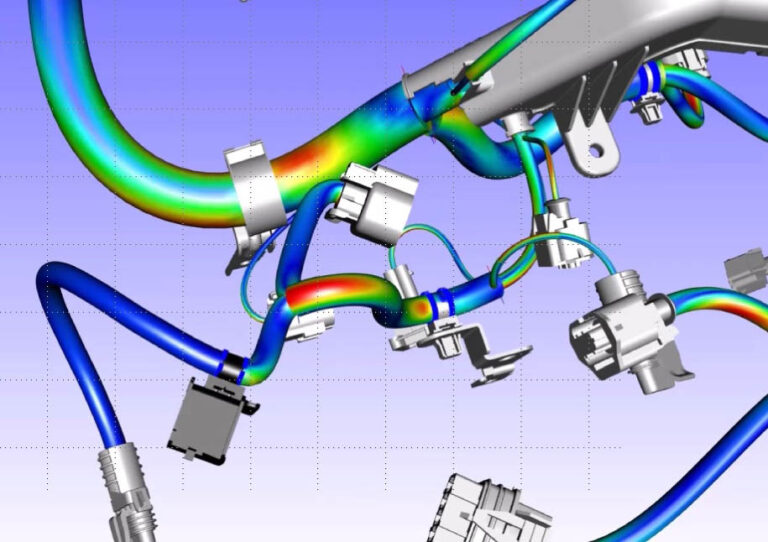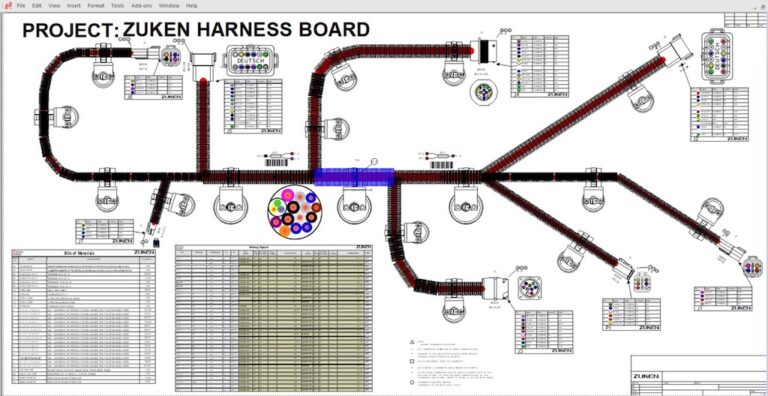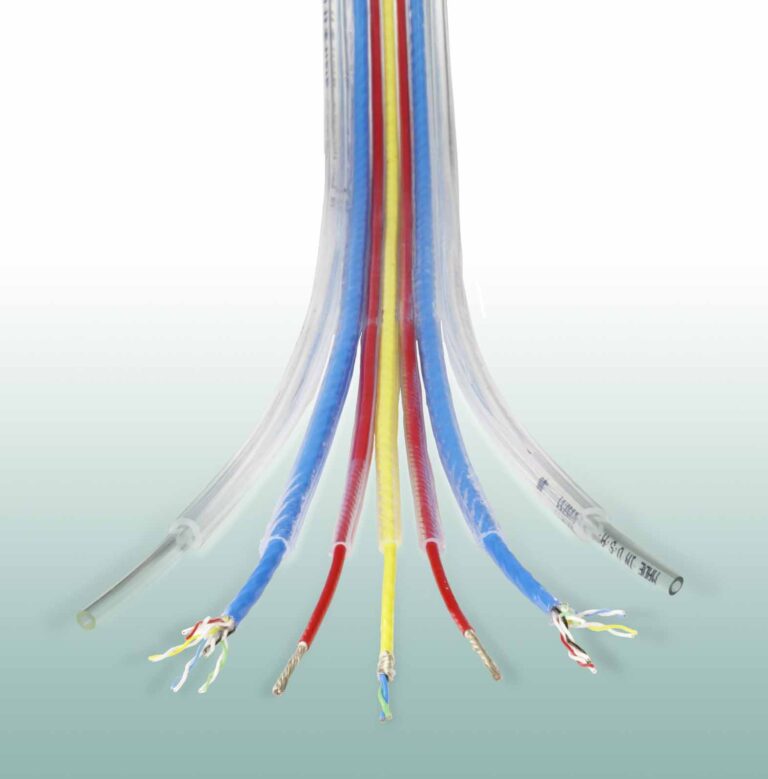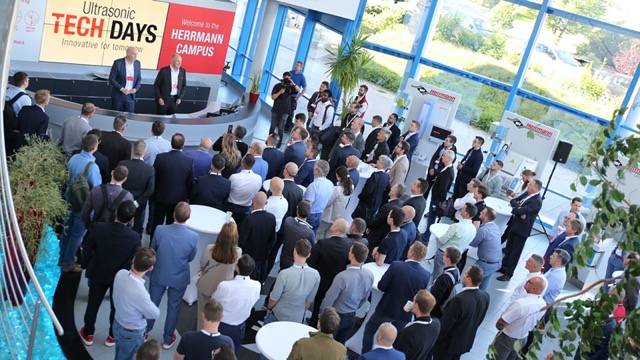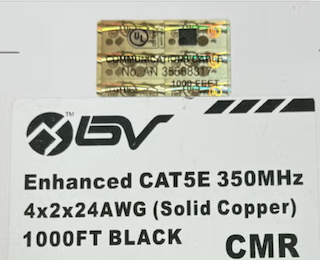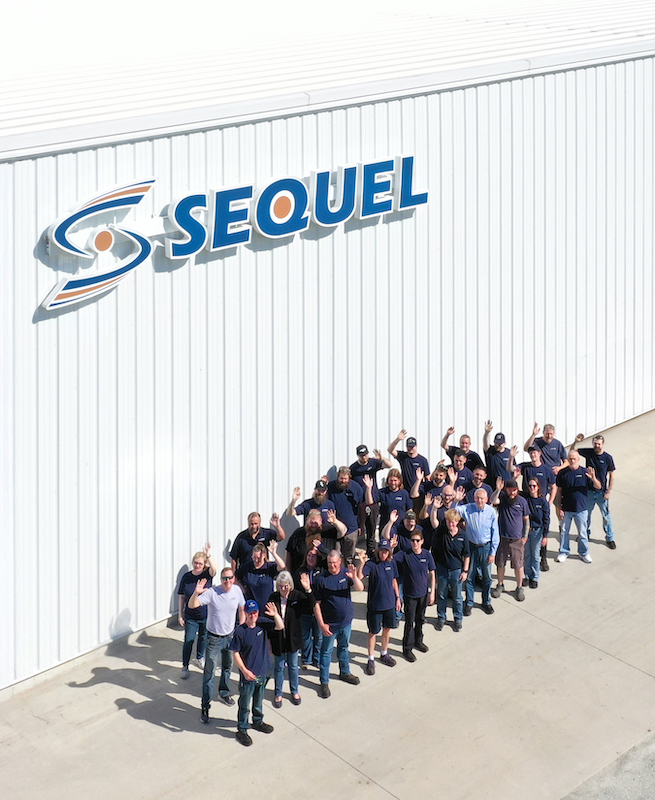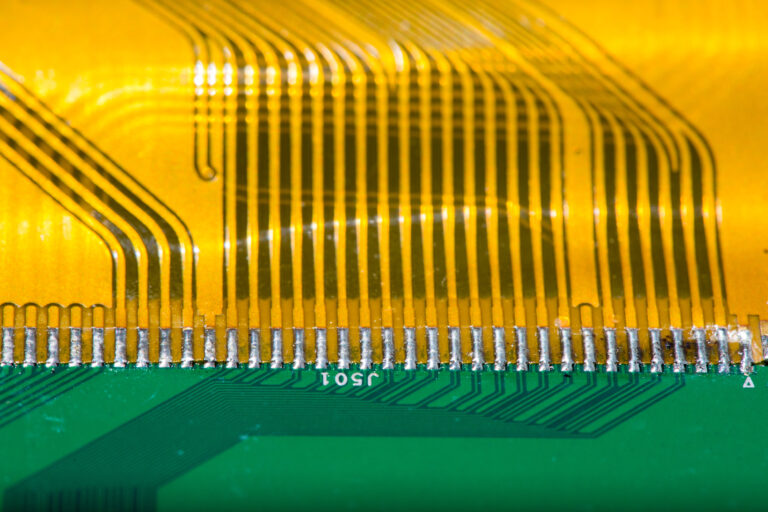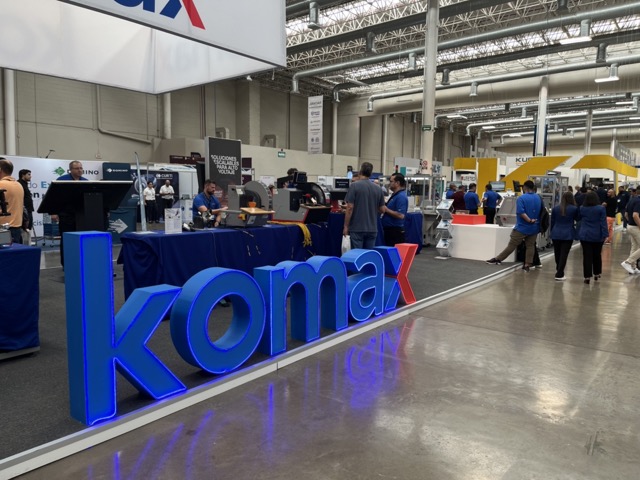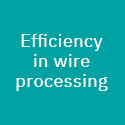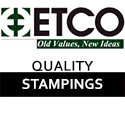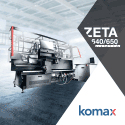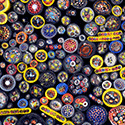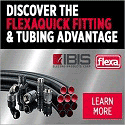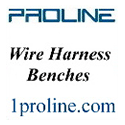The ability to provide injection molded assemblies opens up many markets and opportunities for harness producers. Assembling the equipment and expertise to bring this technology onboard, however, can be daunting. Designing and machining the molds for prototype and production is yet another skill to master.
There is a way to jump start the process of adding this capability to your arsenal. WHN recently interviewed Brian Betti, President at LPMS. His company is a manufacturer of low-pressure molding equipment, distributor of resins, and a purveyor of knowledge to the wire harness industry.
Brian began with how he and his partner, Michael Pierce came to acquire LPMS. We moved into a brief history of low-pressure molding, then branched into the ways LPMS is guiding harness manufactures in the development of this capability.
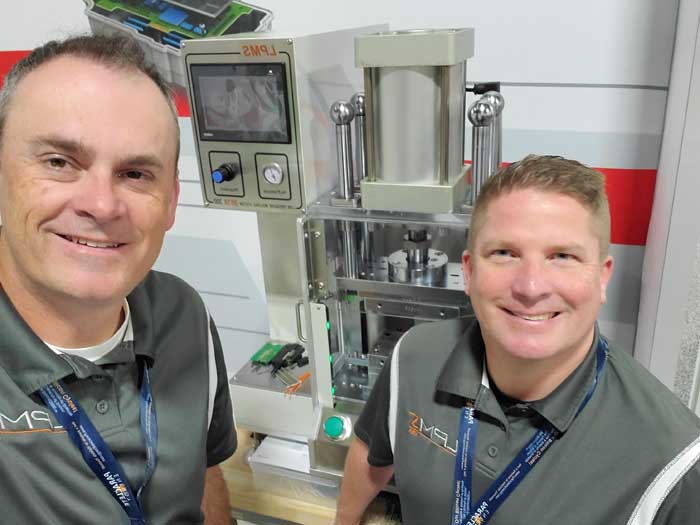
Brian and Michael have been friends for 18 years. They met at a customer site, each pitching competing encapsulation technologies for different business units at Henkel. In late 2016, the two purchased Chicago-based LPMS. They have leveraged their combined experience of 45 years in low pressure molding technology to take advantage of the opportunities the industry has to offer.
Low pressure molding began in Germany about 40 years ago to service the automotive wire harness industry. “It was developed to replace heat-shrink tubing in many applications, provide strain relief, and seal the back of connectors from the effects of harsh environments,” Brian detailed. It uses a combination of relatively low pressure, pushing relatively low temperature resin to encapsulate components like connectors into a part or assembly.
Brian then described how the need for low pressure injection molding developed. Back in the late 1970’s, automotive electrical systems were becoming more complex. Heat shrink tubing just wasn’t holding up to the increasingly rigorous testing standards. Also, the traditional method of connector sealing by backfilling them with epoxy was proving to be inefficient and time consuming. “People did try to use high-pressure molding but the force and pressure of the material damaged the connector,” he cited. Low pressure molding provided a faster more repeatable and reliable option.
As automotive wiring evolved into increasingly complex integrated assemblies, this method of protection became even more vital. “We started encapsulating things like sensors, and then those sensors got integrated into harnesses,” Brian explained. “Almost every vehicle today, consumer or commercial, uses this technology in one way or another.”
As mentioned earlier, the LPMS business model transcends far beyond selling equipment and resins. They actually help usher in this technology to contract manufactures not currently offering it. “We offer a turn-key service from prototype to full production,” Brian asserted. He described a typical situation where an OEM or contract manufacturer runs into an application for injection molded parts. “We can start by reviewing the drawing and saying, hey, if you move this or change that, you can mold that part a lot more efficiently.”
LPMS will then produce a prototype tool, then move into production tooling when the time comes. The production tooling is then mated with one of the 15 different molding platforms the company offers. “The production platforms are picked based on the size and geometry of the component, along with the amount of throughput the customer needs to get into the market,” Brian indicated. The equipment ranges from small tabletop units for low volume, to large dual-nozzle rotary shuttle machines.
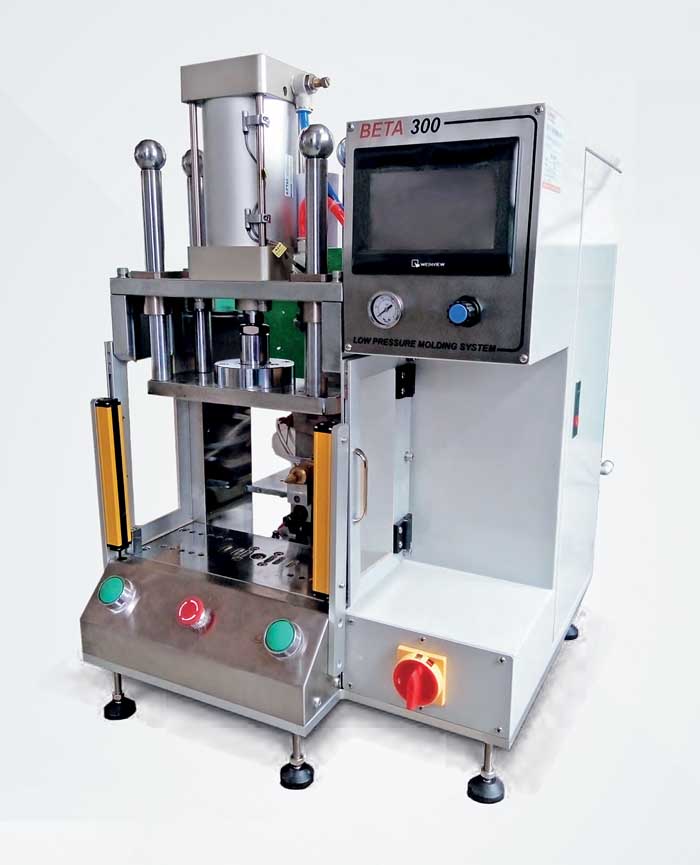
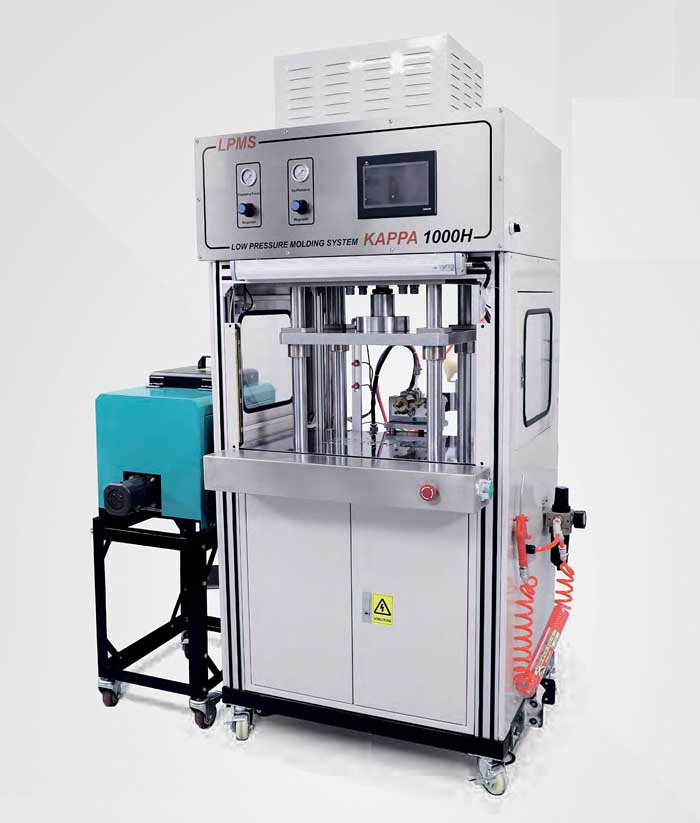
“During our tooling trial we have already validated that the tool works and developed a repeatable process. So, the shift to production at the customer’s site is pretty easy,” Brian stated. When the day does come for that shift, LPMS is on site to set up the equipment and train employees on operating and maintaining it.
The transition is usually a one or two day process where LPMS personnel watch the operators run the machine and make sure they address any questions the customer may have. “As soon as they see how the process works and how easy the machines are to run and maintain, companies will find more and more ways to use this technology.”
The conversation then turned to the choice of resins used. It’s a key parameter to the success of any design, as some assemblies may be in direct sunlight while others might lurk underneath a truck frame. “Every customer fills out an application form so our material science team can understand the application and testing requirements,” Brian said. As a distributor for Henkel, Bostik, Toyobo, as well as their own line of resins called Spectra-Melt, the company is well poised to help their customers pick the right resin.
LPMS is committed to making injection molding technology financially obtainable. “I would say that before we came along, the barrier to entry kept many small to medium size businesses from introducing this technology.The upfront costs of the equipment alone was just too high,” Brian advised. For LPMS a prototype tool usually cost between $4,000 – $7,000 with a production tool being 2 to 3 times that depending on the size. Their machines range from $25,000 – $125,000, with a wide variety to meet a vast array of part geometries and production runs.
Brian, Michael and their team are convinced that this technology makes suppliers much more valuable to their customers, especially in the burgeoning EV market. “Electric vehicle development is really pushing the wire harness market to improve and deliver new and innovative technologies, and we are happy to be part of that. We’re helping develop new materials and new resins that can meet the higher voltage demands, while making sure these new materials are able to withstand evolving testing parameters,” Brian asserted.
There are also many doors to be opened in the medical device industry by adding injection molding to your capabilities. “The medical market is really growing with this technology and we’ve launched medical certified materials which are tested for cytotoxicity as well as many other medical standards,” Brian informed.
In closing our conversation, Brian wanted to mention the global footprint of LPMS. “Many of the customers we work with here in North America do design and prototyping, but the manufacturing can happen anywhere around the world. We have a global service and support team that are in all the main manufacturing centers throughout the world, and can handle the transition from here to there.”
LPMS is located just outside Chicago, and Brian invites you to come see the equipment and processes in action. They are molding parts every day and are happy to perform demonstrations. You can meet the LPMS team at the WHMA conference in February. Or you can reach out to them at
[email protected], 800-353-7773.
`

